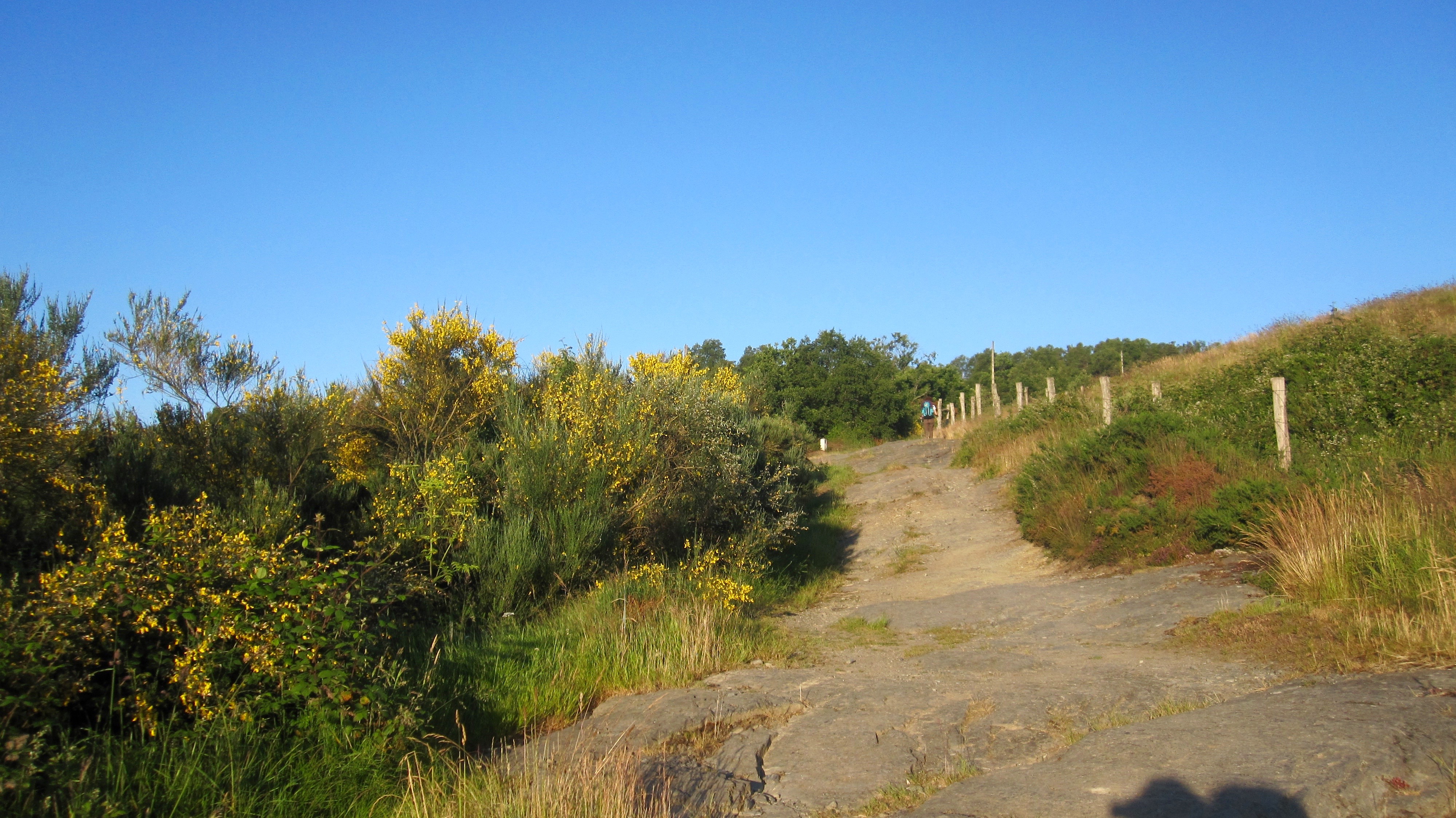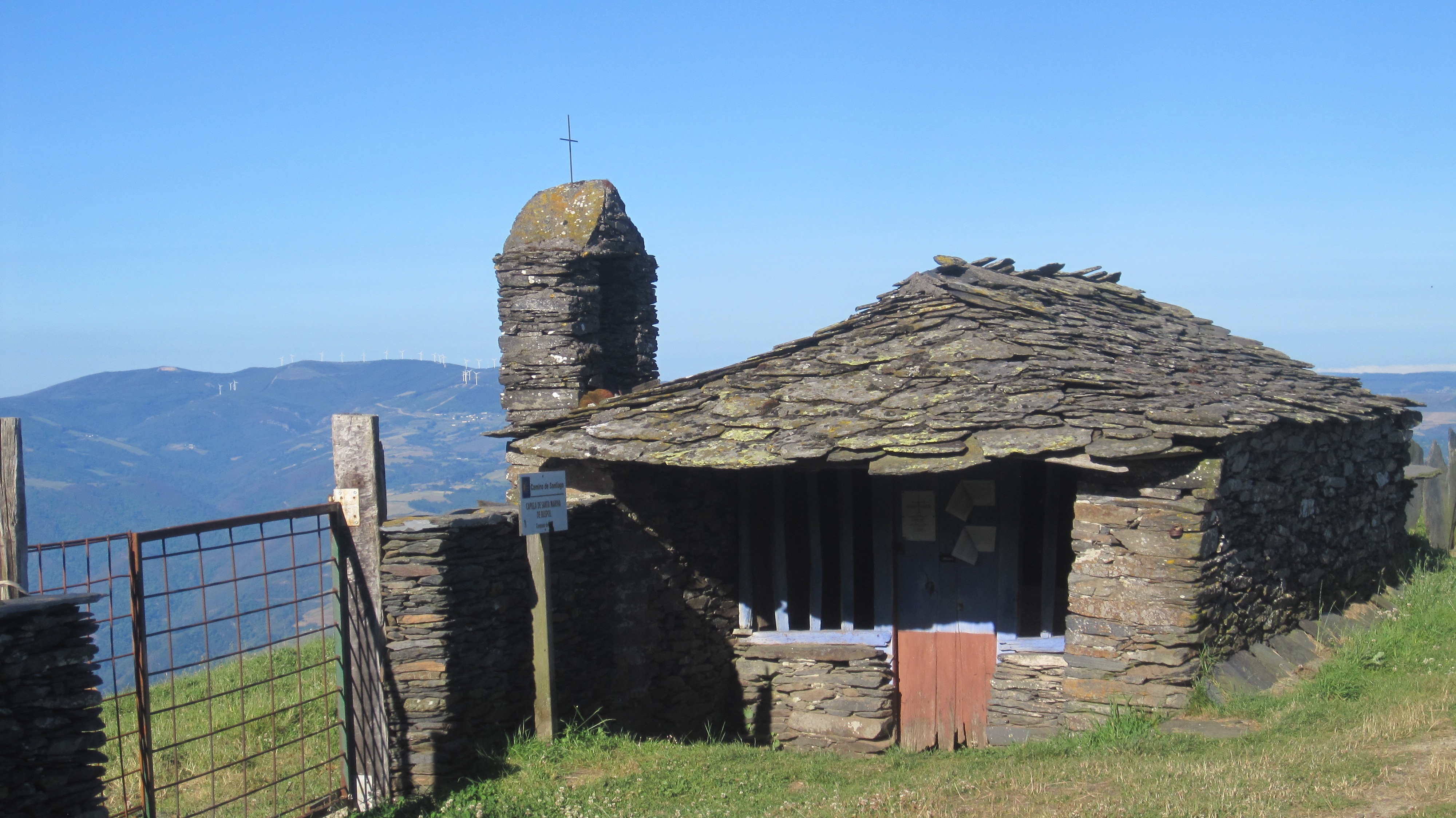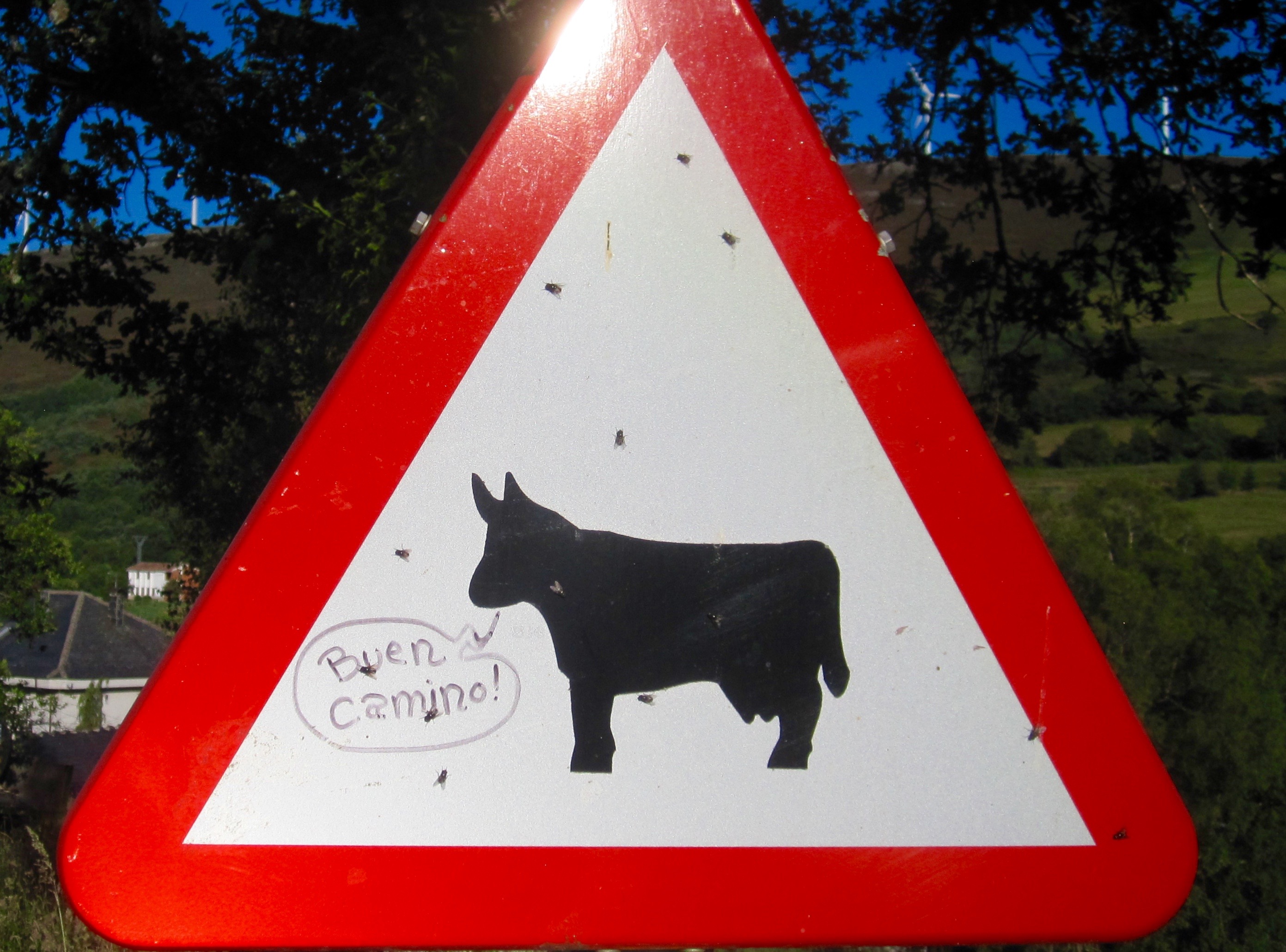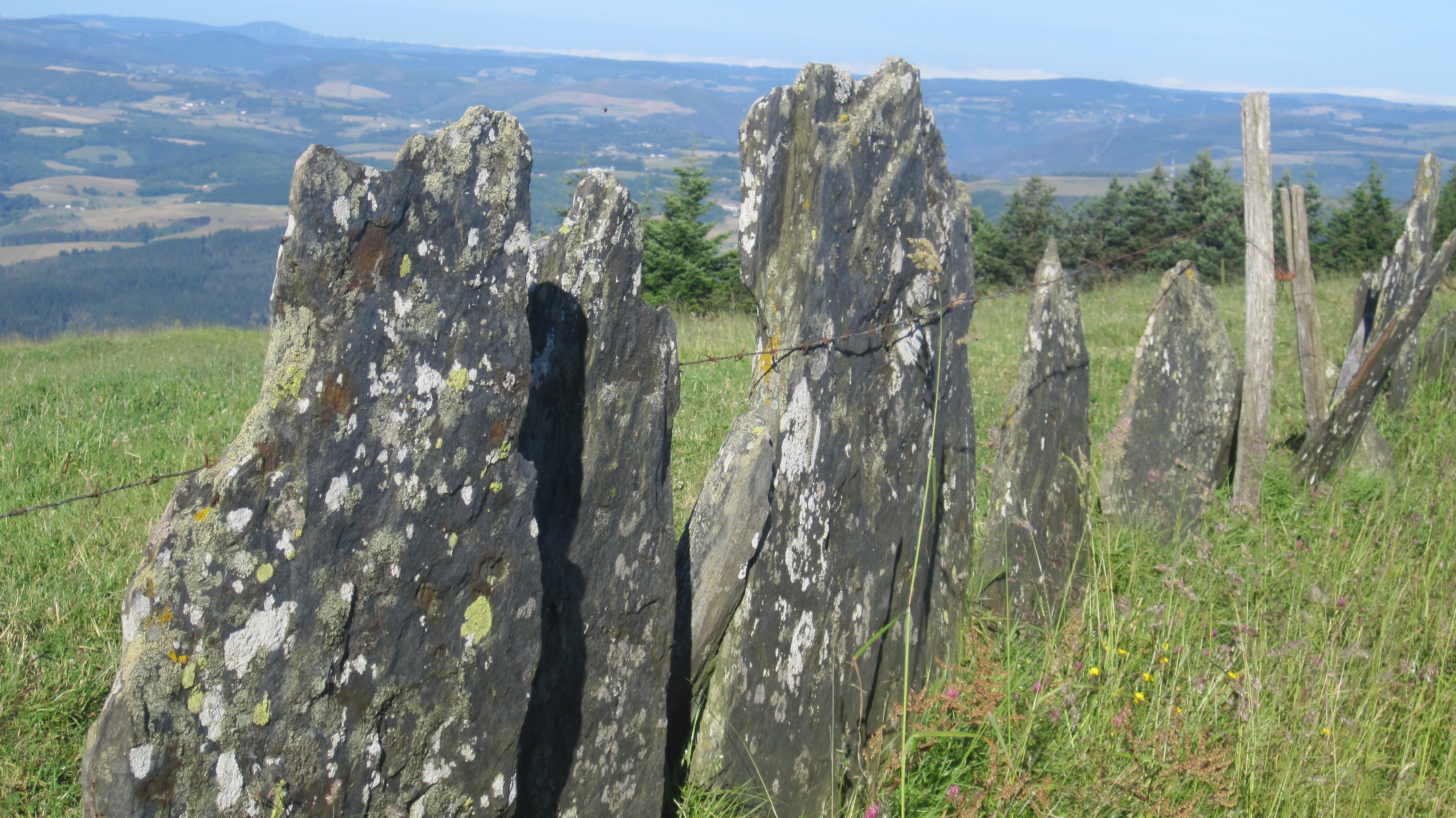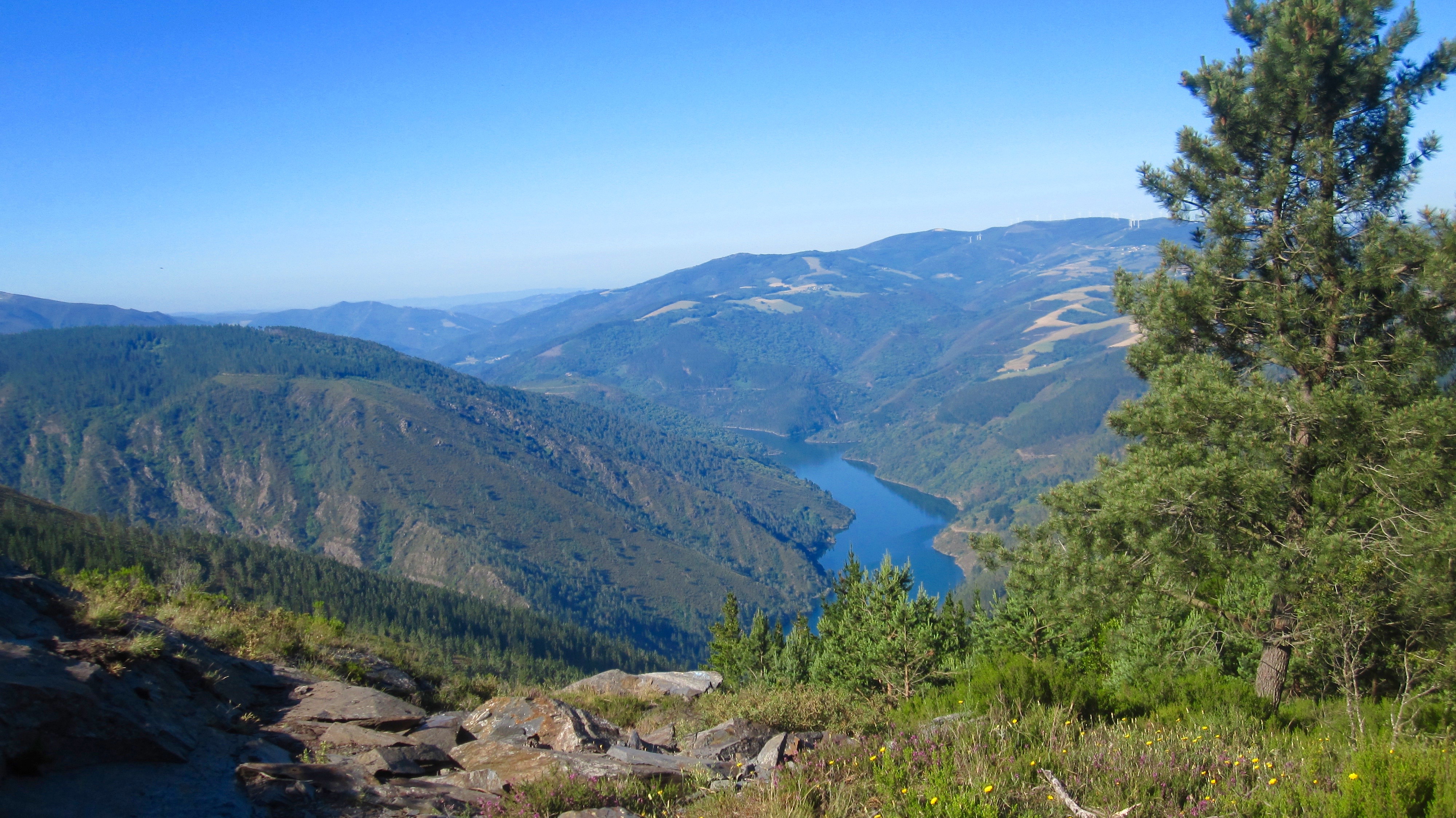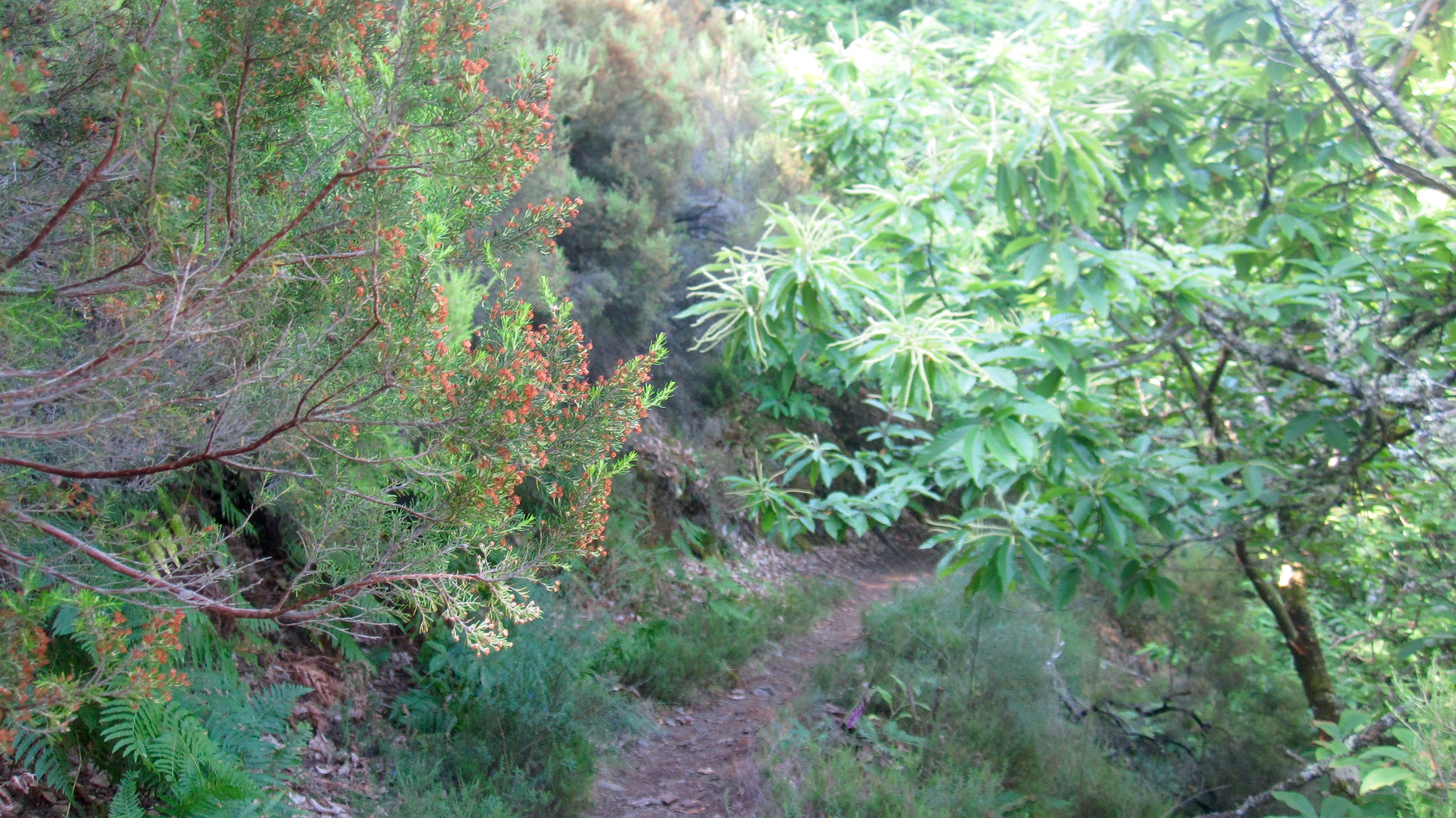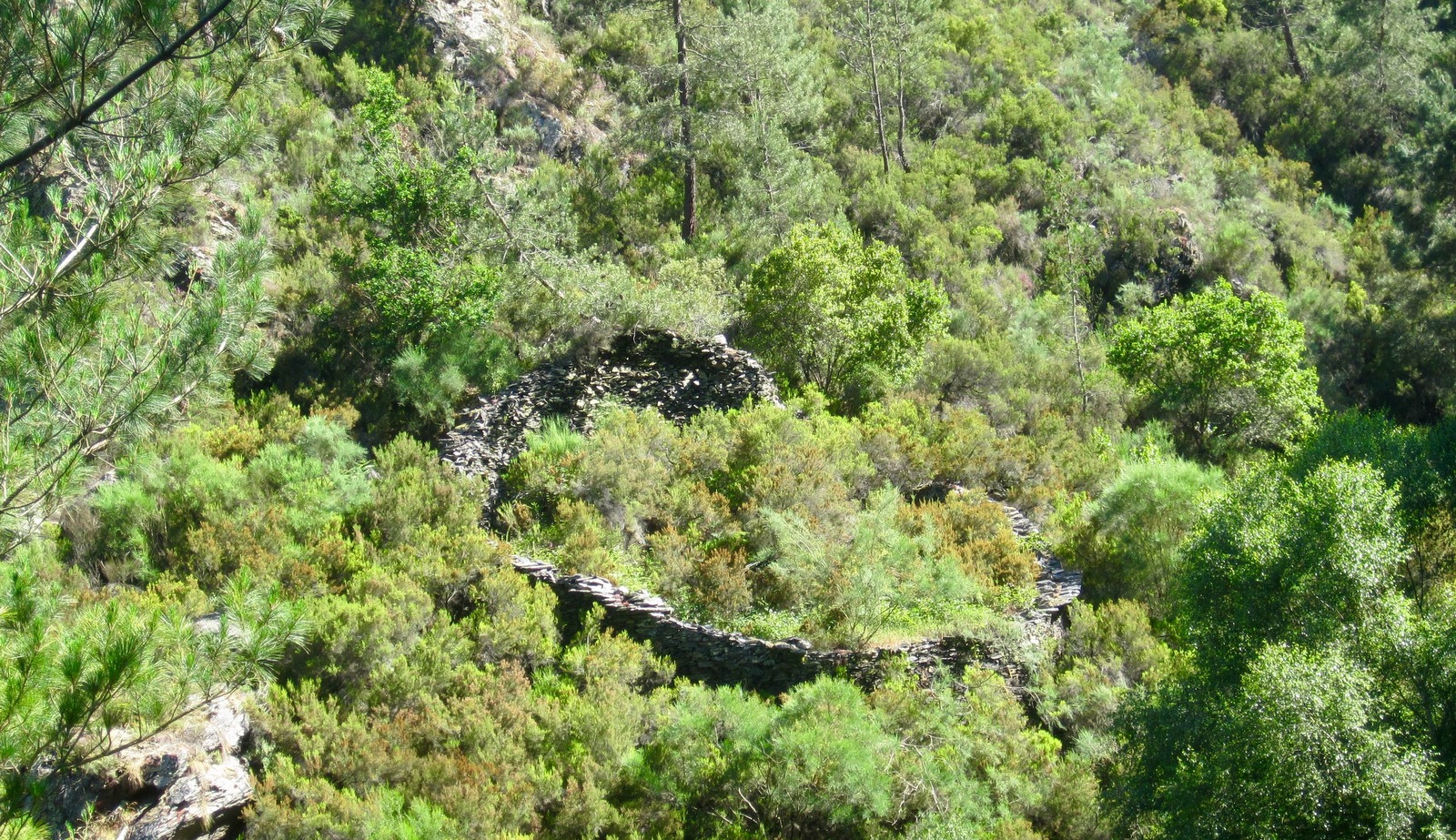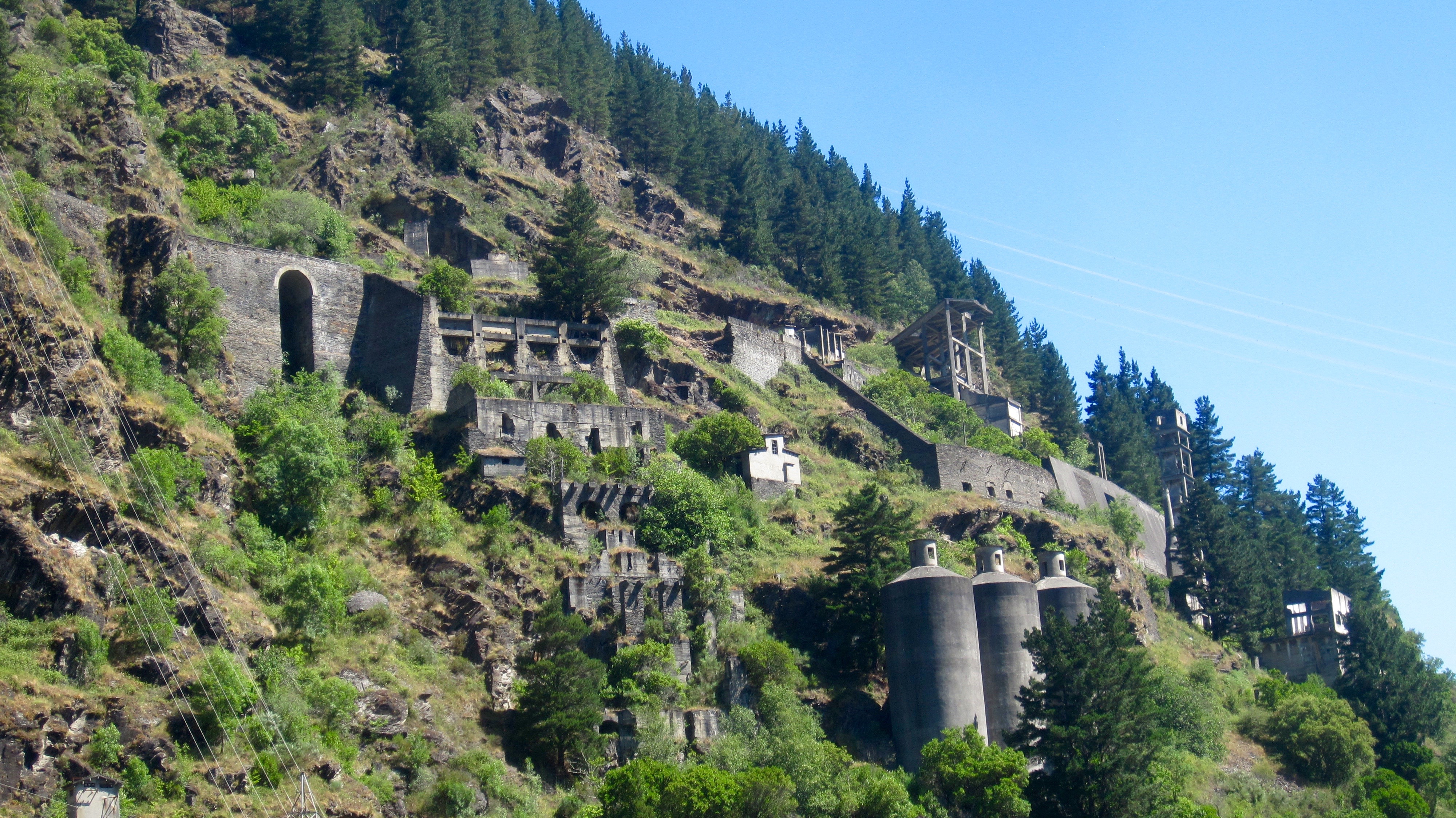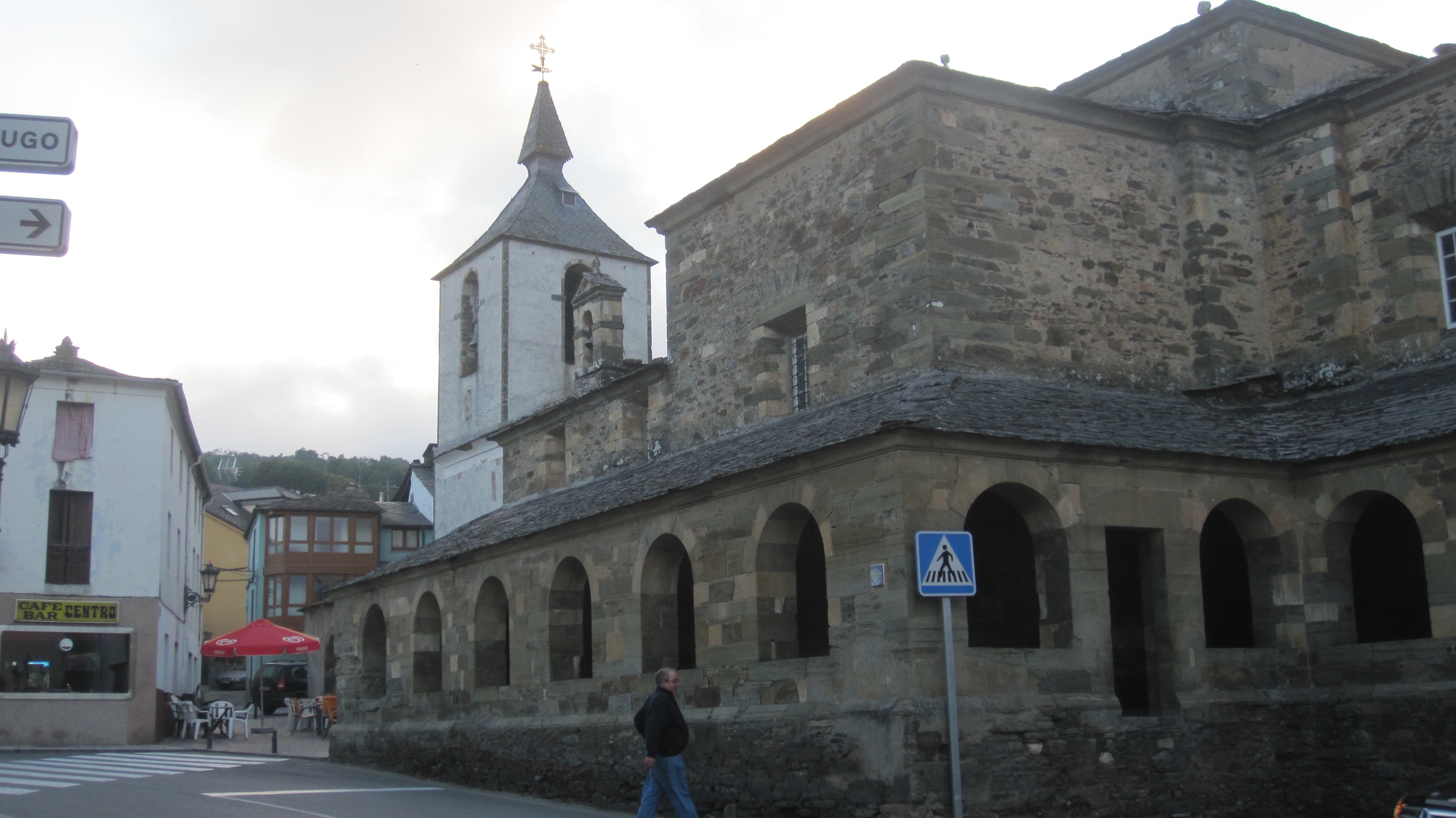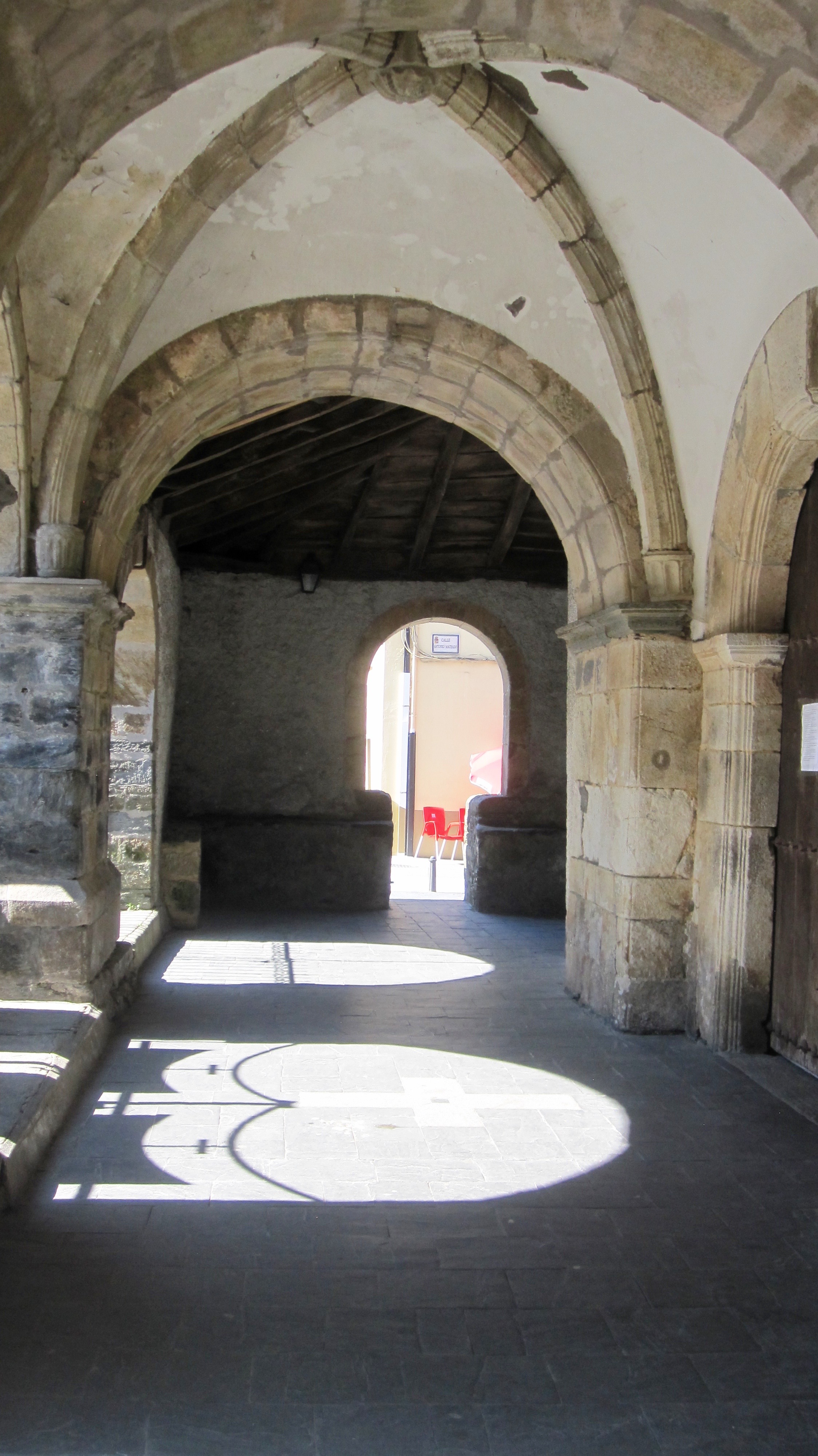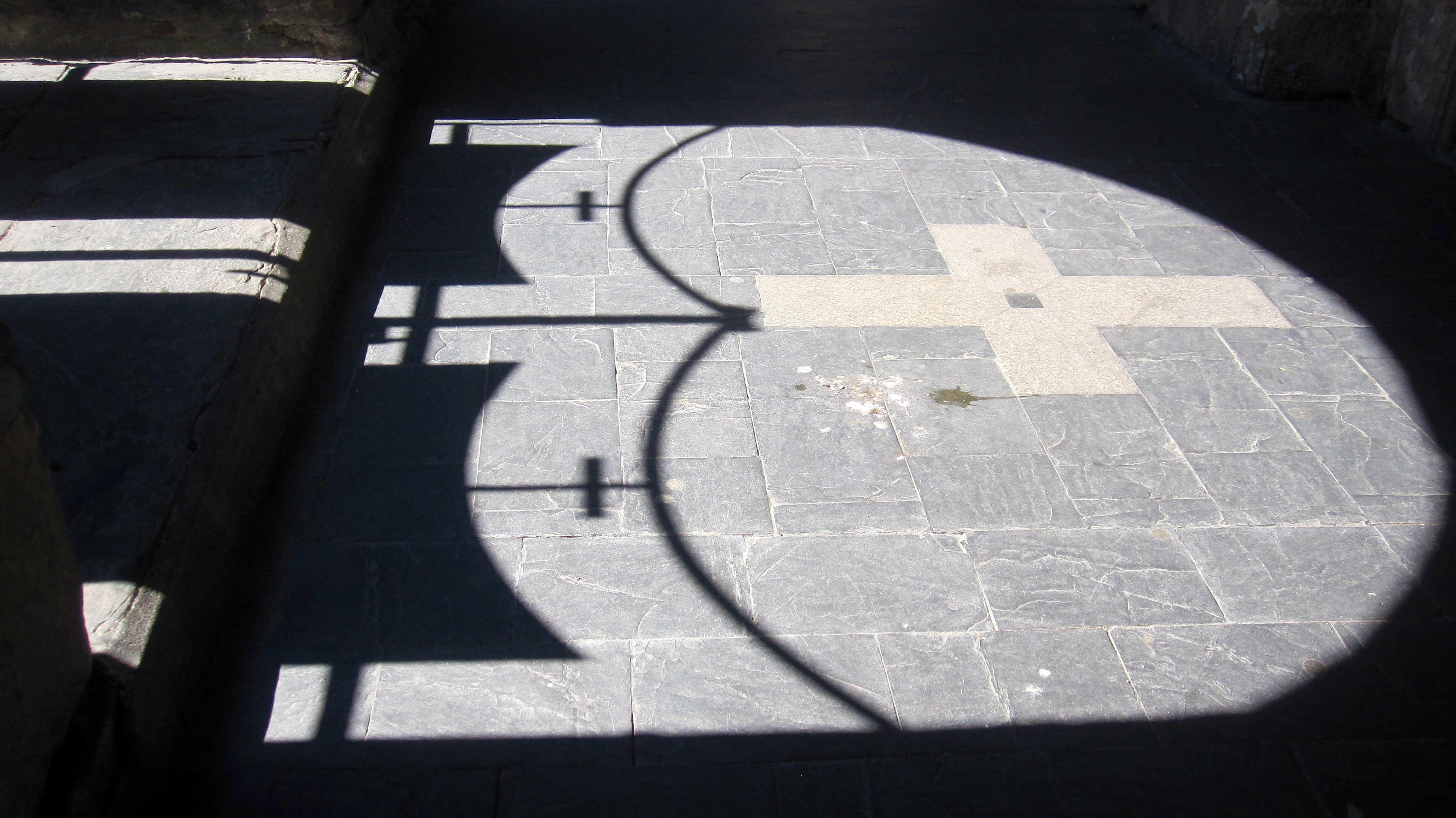The first two hours of the morning hike where still up at an altitude of 3000 feet.
Thesilence, beauty and remoteness of the path was stunning.
Windmills on the top of the mountain added a curious, deep sound in the distance.
Yellow blooming broom along the way
Walking constantly into my own morning shadow
Distant windmills
Chapel of Santa Marina de Buspol, part of a former hospice
“Buen camino” is the common greeting form on the Camino in Spain.
When Spanish people see a peregrino (pilgrim), they also greet with buen camino.
I liked the fact that a cow was included.
Soon after the little village of Mesa (20 inhabitants) the path went constantly downhill.
In long and steady spirals it was leading through a dense sweet chestnut forest into the valley to a man made lake.
.
Embalse de Salime (man made lake) in the distance
Blooming sweet chestnut tree to the right
In former times, bears lived in these mountainous areas. People who kept bees built
circular high stone walls in the woods where they kept the beehives so that bears
could not get to the honey.
Circular stone wall for bear protection
Looking to the far shore of the lake, the white houses seemed to be part of a village – but all were abandoned. They had been houses for the workers building the dam during the Franco era starting in 1954. Also the huge construction plant on the hill is a ruin now.
The town of Grandas de Salime was – like Tineo and Obona – already an important town during the Middle Ages.
However, it doubled its size after the village people of Salime had to leave their home
because of the building of the dam.
San Salvador with Romanesque, Gothic and Baroque features
Gothic Arcades of San Salvador
Fascinating shadows
Grandas de Salime has also one of the best ethnographic museums of Spain. It was interesting to walk through the place and see the different workshops of craftsmen.
In the workshop of the shoemaker, I saw the process of making a typical Asturian wooden shoe.

